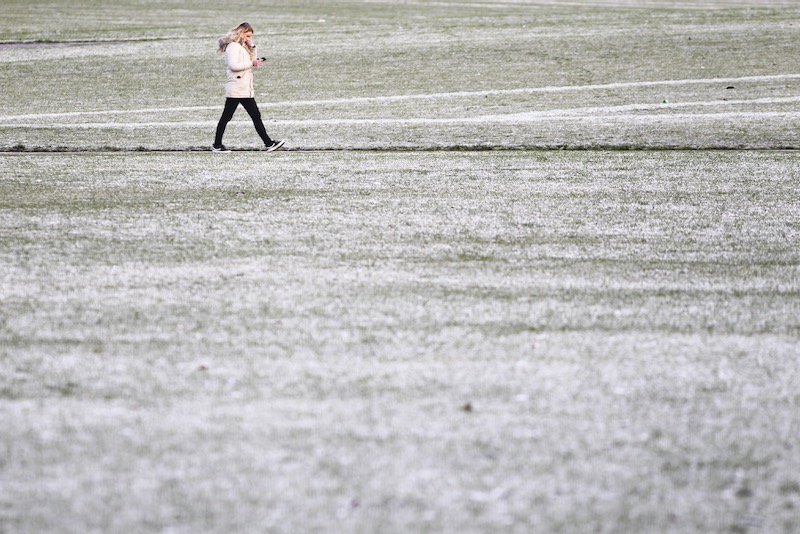“I rhyme,” Seamus Heaney professed in his poem Personal Helicon, “to see myself, to set the darkness echoing.” In 2020, for so many people the world has been turned upside down – the darkness of isolation, lockdowns, separation, unemployment, anxiety, and in the worst cases, loss. During the UK’s first lockdown in April, I was involved in a volunteer group providing support to vulnerable people, often living in isolation. I contacted Bloodaxe Books to buy 150 copies of their poetry anthology, Staying Alive: Real Poems for Unreal Times and distributed them around my neighbourhood. If ever there was an unreal time, this was it.
The response solidified the idea that poetry itself has a therapeutic effect – often expressing ideas we wished we could say. It is not necessary to know a lot about poetry to be affected, calmed, and comforted by the words and ideas expressed in a short, few words by a poet. The emotions of solitude can take on a shape, that some can find pleasing, even if they are returning to it years after having first read it, perhaps at school. We can take solace from lyrical words, without ever really knowing the meaning or, for example, why Heaney wrote or what he meant by setting the darkness echoing.
For many people what is off-putting about poetic form is the belief, sometimes based on an unlucky class or exam, that there are cold and arbitrary rules causing that jumble of words to be separated in different verses and other poetic tricks, imposed to close readers out rather than include them. An anthology can help people realise the breadth of poetic forms – the sonnet is different from the villanelle which is different from a ballad, which is different from an elegy, etc – and this reflects the breadth of human experience. The poetic form is human, from the mundane to the theological, and each style can lend itself to stirring the emotions – think of the stirring circular refrain of the villanelle Do Not Go Gentle Into That Good Night by Dylan Thomas, or the sadness of George Barker’s sonnet To My Mother, which ends with the poet sending all his love “to tell her / That she will move from mourning into morning.”
So, old poems are discovered by new readers, and some are talismanic to readers who cherish certain poems and carry them close to their heart, for special occasions, sharing with friends, or keeping them by their bedside. Anthologies offer a wide range of poems where people, while in isolation or lockdown with family, can dip their toes in the water, knowing they are in a world without certainties, and find a companion in a poet that has treaded different water before, speaking for the crushed or embattled individual, like Ireland’s Louis MacNeice or Estonia’s Doris Kareva. William Stafford’s words resonated: “Nothing you do can stop time’s unfolding.” We were all collectively watching time pass, at home.
Poetry now is increasingly used in therapy – helping people in churches, hospitals, schools, rehabilitation centres and other support settings, helping them see and understand themselves and their situations. It uses language, symbol, and story in therapeutic and educational capacities, and reflects real emotions, heightened in 2020 as we face the unknown, traversing steep paths and coming face to face with trauma (all of us, regardless of our walk of life). While physical distance suddenly became imperative, social connection remains a necessary part of our lives. And poetry offers a connection, and a challenge: can we write, too, to see ourselves, or have all the poems been written?
Knowing the importance of a creative outlet while days shortened, darker and colder, and another lockdown loomed, three esteemed writers set to work to help. Piers Plowright, Jehane Markham, and Sean Street agreed to judge a poetry competition, and my village – where I originally met Piers by helping him in the first lockdown – became the Bethlehem of the Folklore Prize. We hope it offers a challenge and focus to people all over the UK and Ireland.
Based on the entries so far, the poems offer hope, not just reflections on longing, loss, separation, and grief. It is free for unemployed people, and half price for students and the NHS workers who went to work while we stayed at home, watching TV, playing games, and in some corners, reading poems and seeing ourselves in a poem written long ago, which stayed in our thoughts long after we closed the book, while the night came on and the darkness echoed.
All information is at www.folklorepublishing.co.uk (deadline for entries is December 15).
Martin Connolly (MBA, B.Com) is a business consultant on embedding social value, writer, and member of the Council of Governors for his local NHS Trust.



 Loading ...
Loading ...
What do you think?
You can post as a subscriber user ...
User comments (0)